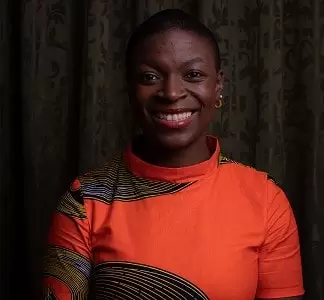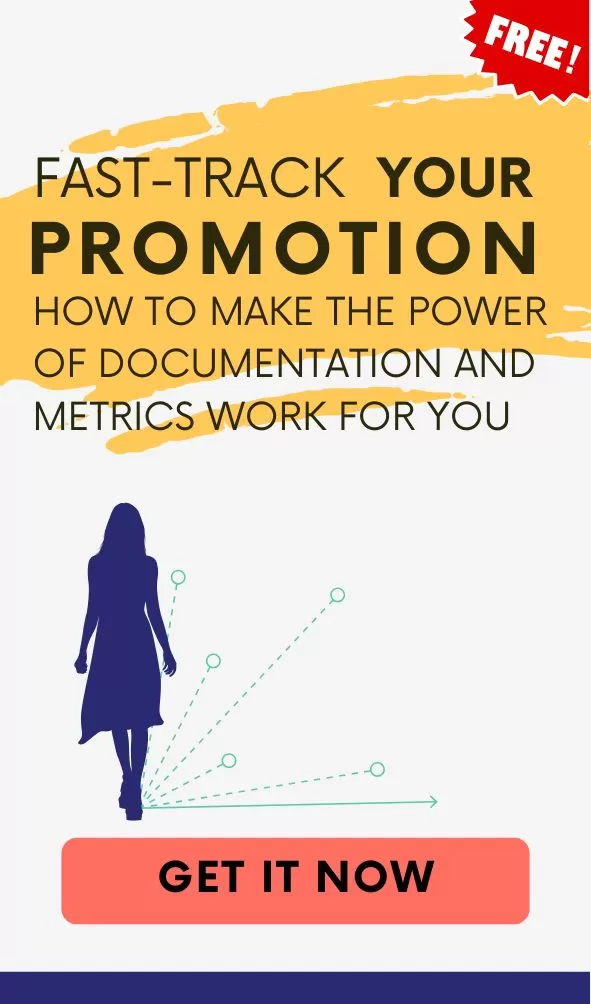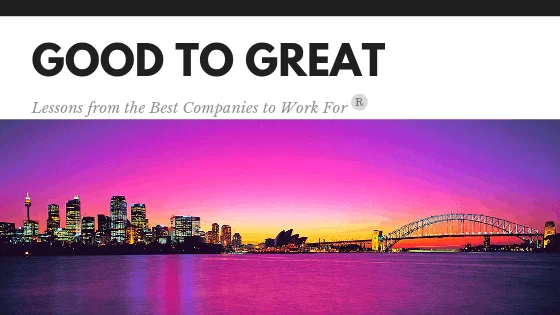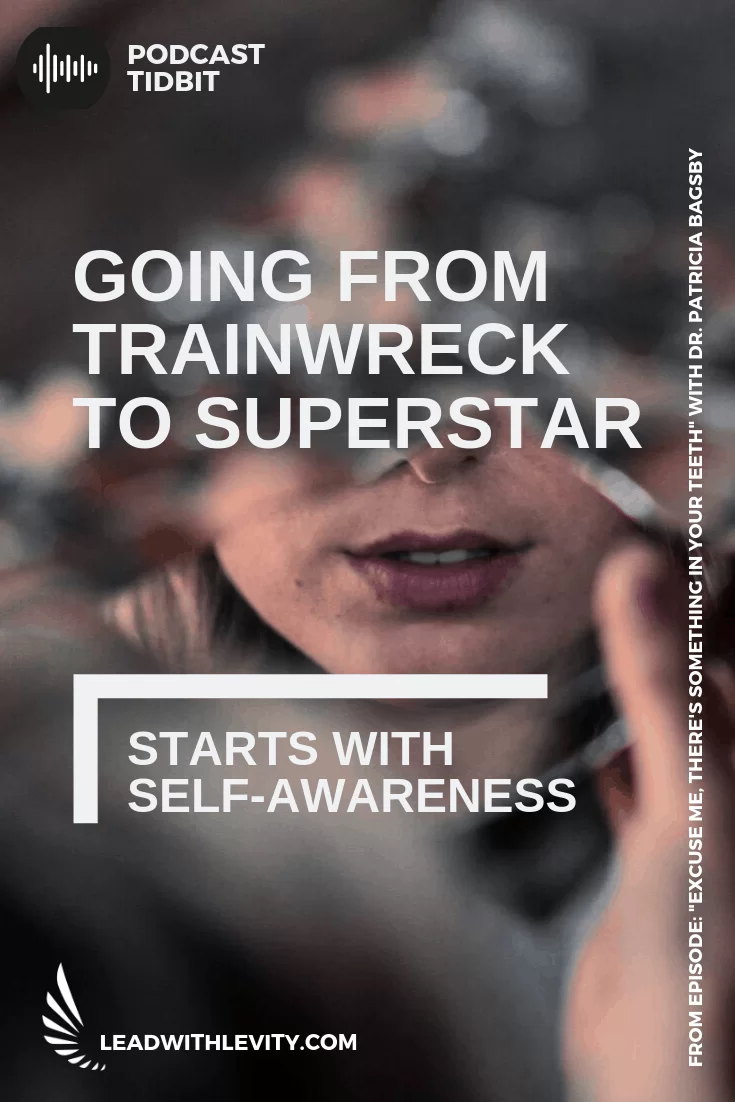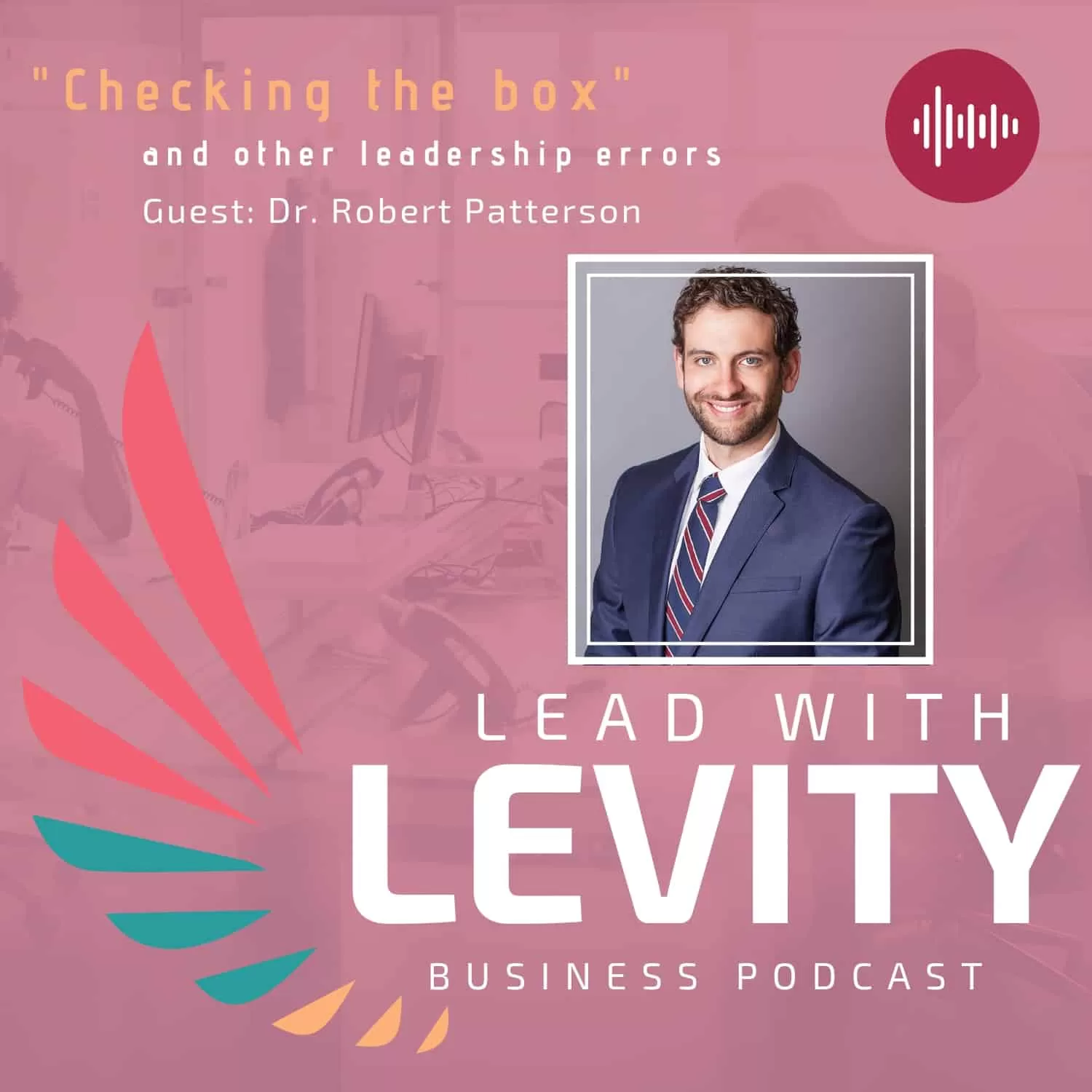Have you ever wondered what it would be like to get paid to travel the world, deliver stand-up comedy, become an angel investor, and drive sales for a large international organization? Well today’s guest is going to show us how it’s done. Kelli Lampkin has worn many hats in her time, and today she’ll join us to chat about how her experiences have made her and her team better salespeople.
In this episode, we cover:
- What it was like to live as a NetSuite digital nomad, including her time in Transylvania
- How Kelli incorporates stand-up comedy and sales
- How she used a bit of levity to encourage sales at NetSuite
- How she makes cloud ERP fun
Prefer to read instead?
Expand to view episode transcript
Bringing Comedy to Sales: A NetSuite Nomad’s Journey
Heather Walker: [00:00:00] All right, everyone. Welcome back to the Lead with Levity podcast. I’m your host, Dr. Heather Walker, and you are in for a treat today. Today’s guest is Kelly Lampkin. Kelly is a comedian, a DJ and entrepreneur, an angel investor, and an account executive at NetSuite. And. You should know NetSuite, and if you don’t, maybe Oracle will sound familiar.
Kelly, I am so excited to have you on today because you are doing all the things, welcome to the show.
Kelli Lampkin: [00:00:41] Thank you so much for having me, Heather. I’m so happy to be here with you.
Heather Walker: [00:00:44] Awesome. So when you go to a cocktail party or… Imagine with me the days of cocktail parties and networking events. When you go out to a networking event and someone asks you, “what do you do?” What is your answer to that?
Kelli Lampkin: [00:01:00] I guess it depends where I’m at, but, usually I ask them if they want the truth or if they want the fake story.
Heather Walker: [00:01:07] Ooh, I can’t wait to hear. Now I’m curious, like the truth or the fake story. What is the truth? We’re all about authenticity on the Lead with Levity podcast.
Kelli Lampkin: [00:01:19] Yeah, the truth sometimes sounds unbelievable especially when I was doing my… I did a trip around the world with NetSuite and got to travel to 25 countries in 12 months. And, that was like unbelievable to a lot of people, but it was, that was the truth. That was a really fun opportunity to get to understand our customers better and our partners all over the world and really build a program for NetSuite where we could do social selling in a more effective way. So that was part of my job. But I think every year I’ve shifted my job in a way, but what I do, isn’t really, even my job, like I think what I do is I try to build communities for my clients to evangelize products and then also to grow their own businesses.
So I’m all about building a community for the people that I’m working with. And very often that bleeds into friendships and coworkers and clients. They all become the same group after doing this for so long.
Heather Walker: [00:02:17] Wow. Wow. So you said so much there, and I’m going to have to unpack some of that. So you traveled to… did I hear that right? 25 countries in 12 months?
Kelli Lampkin: [00:02:28] Yeah, that’s correct.
Heather Walker: [00:02:30] And that was all for NetSuite. What was it like as a NetSuite nomad?
Kelli Lampkin: [00:02:36] Yeah, so I invented the rural. so I’ve been in that state for a long time ago, almost 10 years, and I’ve been in sales. So I started out in our business development program, which is basically, inbound leads come in and we learn how to learn about our product and learn how to position it to potential customers.
Then I got promoted to be a sales rep, and then I was a manager at one point, and then I had an opportunity with a group called Remote Year, which is a different company than the NetSuite Oracle. And what they built is a program where all different companies can come together and travel the world together to prove this was, three or four years ago to prove that remote working is possible, from anywhere. And so I was with people from IBM and from Salesforce and, all kinds of, even small companies, startups, independent consultants, and, a lot of artists I would say. And so 75 of us traveled across the world together, remote you’re sponsored, 10 locations. And then I did another 15 on my own, and that was an opportunity for me to really work with a bunch of other digital nomads and prove that working from anywhere was totally possible. And so that’s what I got to do as a part of, and that’s what sponsored that program for me. And we built a marketing role for me to do as I was doing that trip.
Heather Walker: [00:03:49] So you were sold out at this point on the idea that remote work is possible from anywhere?
Kelli Lampkin: [00:03:56] I haven’t been working in an office for a long time, so right now we’re in COVID. I’ve been working remotely for a long time.
Heather Walker: [00:04:03] And what would you say is the key to success in, in working remotely?
Kelli Lampkin: [00:04:10] I think that what people are experiencing now is that they’re losing a lot of the difference between their work time, and their family time, or their personal time. And that was something that, I had I wouldn’t say a loss, but I had already modified for a long time. So it’s also the nature of my job, which is probably different than other people, like I don’t really have an hourly clock in clock out type of job in sales.
And I think with anybody who’s at a startup, really, if anyone is like a part of a company where they’re working towards a mission–and I’m working towards a mission and a commission– like I’m working all the time. So I could be working at night, this is a Saturday right now that we’re talking, I could be working on a weekend.
I could be working any time of the day, any day of the week, but also sometimes in the middle of the day. I don’t have to be working on a Wednesday. So I think that I had already for a long time gotten into that kind of habit and how I think about my, work time and my playtime. And so that is probably what a lot of people are struggling with is trying to create distance between that.
And I’ve just adopted a culture in my personal life where I’m always working, but I’m never working. I’m always available to my friends, but I’m also about always be available to my customers.
Heather Walker: [00:05:21] That’s really interesting. I can imagine that when you were traveling with the 75… you said before that you build these communities for your clients so that they can evangelize and really grow their brands. I can imagine that you built up a pretty solid community, even with the people that you were traveling.
Kelli Lampkin: [00:05:43] Kind of like your new coworkers? Even though it was special because none of us worked for the same company. So normally you build a cohort with the people that have something in common with you. And usually it’s you’re going to the office with the same people are in school. You’re sitting next to people in the same class, on remote year, like we had the thing in common, which was this travel bug, but we also made friends with people that weren’t in the program. Like I would be in a new city every week. Sometimes I’d be in a new city and we’d make new friends in that city that weren’t even affiliated with our program, people that would meet in the world.
I was working from a boat in Serbia on the Danube river. I was working from the bottom of a salt mine in Columbia. I was working from restaurants in Prague. Like I was working from castles in Romania, from beaches and Costa Rica, like anywhere with internet, I was able to do work. And that also conditioned me to be quite good at dealing with a lot of distractions, which I’m learning, not everyone has acclimated to.
Heather Walker: [00:06:38] That’s very true. That’s very true. If you can get work done at a salt mine, then you can work anywhere. yeah. In America, I’ll put on my America hat. In America we often talk about just a handful of places that you have to go visit outside of America. It’s Paris, it’s London, it’s the standard places. You’ve been all over the world. What are some of your most favorite places that maybe are a little bit off the beaten path?
Kelli Lampkin: [00:07:10] Yeah, I would say there’s so many interesting, fun places in the world. and I haven’t even mentioned to nearly, enough of them. And right now it’s hard because we’re in a travel lockdown and that was a big part of my life, but I would say I happened to be living in Serbia at the time.
And Serbia is not a place that I ever thought that I would go. I didn’t even really know where it was on a map, I would say before I got there. And then, I remember thinking like, Is Transylvania a real place. Like I thought it was, I thought maybe it was mythical.
Like is Transylvania even a real place?
And I was like, it is, and it’s two hours from where I am in Serbia right now. Should we go check up on Dracula and see how it’s doing? So it just gave me the opportunity to do so many cool, random things that I never thought I’d be able to do. So we like took ’em. I think we flew to Romania.
And then we got a guy with a bus and it was just my three friends and me and this little van with them. And you drove us all around to Dracula’s castles and we got to see where he was born. And we got to go into a cave, like a cave full of baths, where basically. When Dracula was forced out of power. And all of the people that were loyal to him were forced to hide.
They hit in this cave for a year and we got to climb around and Spelunk in this cave and they play music in the cave. Now you can have an orchestra come in and the acoustics is it was just the coolest thing. And we just happened to be driving down the road to another castle. And our guy who was driving the bus was like, Do you guys want to check out a cave today?
We have an extra hour. I was like, yes. So it was just a whole year of, yes. Do you want to check this out? And it was so many crazy fun, strange things I never would have expected.
Heather Walker: [00:08:47] That is so cool. Is that how Dracula, the whole folklore about him turning, being able to turn into bats and all of that, is that where that originates.
Kelli Lampkin: [00:08:57] I think part of it might be related, because they had to hide in a place where they didn’t be. attacked by the uprising of the leadership, the new leadership. yeah, it was so cool to be in a cable bats where, Dracula could have hung out. there’s not always evidence of everything, but, it’s pretty evident that people were living there and it’s very likely that it was people that were a little bit.
Heather Walker: [00:09:18] let me switch gears a little bit. cause I could talk to you about travel for days. I’ve missed travel myself. I really do. And I’m so sad. I’m always pulling up the list of places that I can go now as an American and it’s getting shorter and I’m just like, Ugh. Oh, what am I going to do?
so what is maybe some of the best career advice you’ve ever gotten? Because I have a feeling that you’ve been with this one company for a while now. But you’ve gotten to experience some pretty amazing things that some people never get to experience in a lifetime. So has there been some advice that you’ve received, that you feel like maybe has put you in a position to be able to take advantage of those opportunities?
Kelli Lampkin: [00:10:08] Yeah, I would say that I’ve got, I’ve been really fortunate to have amazing mentors in my career. And at my company, I have been at one company since I graduated from college, I was actually. Selling NetSuite before I graduated college, the way that I found, the way that I found NetSuite is, I have a degree in sales, which is a strange thing to have a degree in.
I have a degree in entrepreneurship and sales, which are two things that you probably don’t need to go to school for. because they’re cheap. And I chose them because I didn’t have to take any tests, right? there’s no tests and you don’t have to take an account. I fell accounting software now. and I chose degrees where I would not have to take accounting classes, which is ironic.
So I never had to do, homework or tests, but I did get to build companies and sell basically sponsorships to our university. So my job in college, Was to build companies. And if you succeeded, you got an a, and if you failed, you wrote a paper about why you failed and then you could still get an a, but, and then I sold, things at a university and that’s, it was a sponsor for a competition that I competed in as a senior and junior in college.
And so basically I was demoing, explaining the value of our product. Showing people how they could use it and understanding, how buyer behavior can work. And then with a sales methodology, several different methodologies that we learned in school, I was able to go through role-plays spraining much everyday of my life when I was in college.
I’ve been working with NetSuite for a long time, but I would guess like back to career advice, When I graduated from school, I had a lot of options and a lot of companies that I had gotten attention from through these competitions that I’d been participating in. And I talked to my grandparents, actually, my grandma gave me the best advice.
I think that I’ve gotten, and it really helped me frame a lot of decisions that I’ve made in my life. And that was that when she had graduated from college, she was a physical therapist. And so she had a path where she could choose either to start her own kind of physical therapy practice or go work for somebody as a lower level employee and learn more sales, but get paid a lot less.
I had almost the same opportunity. Like I could either go into a role as an independent contributor, start off with a sales rep. And start getting a quota and run a territory, or I could go into this business development program that NetSuite greeted. And so her advice was she took the path of demonstrating skills, going to lead, taking the bigger salary, building the brand, building the company for herself.
And she always said that she wished that she had taken that time to invest in skills because. She didn’t have as many. And so if you look at the long-term trajectory of your career, if you have an opportunity to demonstrate skills or to invest in new skills, try to take the path where you get to invest in new skills.
I’m so glad that I did that with meat, because I ended up taking a job that was paying me probably half the amount of other jobs that I had offers at the time for, but it’s just made my career trajectory the probably 10 times greater than it could have been. If I had been demonstrating skills that early I’m really happy that I invested in learning those skills so early.
And I always think about that when I have the opportunity.
Heather Walker: [00:13:10] That’s really a really interesting way of looking at it. I’m in like learning and development is my focus area. And so I’ve always been a little bit of that person. Who’s out there. Cheerleading. personal and professional development. If you don’t focus on you and building your skills, how are you going to be more effective?
All of that stuff. Like you, you take your skills with you, no matter where you go, even if you lose your job or if you have to make a new career move or something like that, you’re always going to have those skills. You’re always gonna have that knowledge and that information with you. So I think it’s so important to have, and I completely agree with you there now.
As a salesperson in COVID times, I’m curious. sales COVID is anyone interested in buying anything right now and are, how is morale in sales? I’m just curious, you don’t have to have any statistics, but yeah. if you could give me a sense of where. What is the state of sales in high-tech right now?
Kelli Lampkin: [00:14:18] It is so Nestle was acquired by Oracle about three years ago. And so now we are an Oracle’s year-end so we’re a publicly traded company. Oracle’s year end was May 31st. So our Q4, our busiest time, the month that the corridor in which I make the majority of my sales is, it was March, April and may this year.
And that was exactly when the shutdown started. So we were, I think in March, I was a little bit, everybody was trying to figure it out. Like we were a little bit nervous and I think fast forward to what happened. I had the best year of my career every year of my career has been the best year of my career.
So we did a great job. I can speak for all of horrible and don’t make any decisions on investing based on what I’m saying, obviously, but for me personally, I had a really good year. and I think that was because. I focus a lot on social selling. And that was how I was before the lockdown and before the remote.
And as we’ve talked about, I’m pretty used to working remotely, but it’s not just working remotely. That is important. It’s creating a digital community remotely and creating engagement in a way that can be distanced agnostic. And so that is what I really focused on. Especially as we started to enter into the lockdown is how can we create ways and communities for our customers to interact with each other.
In a remote environment. And so I did a lot of… I host a lot of tea parties, happy hours. Aren’t a hundred percent my brand, but tea parties totally are. And so we did, just five customers and five prospects or three customers and three prospects every other week. Basically I’ll host a little tea party, let them talk to each other and they’re not talking about NetSuite and what NetSuite can do for their business.
They’re talking about what’s happening in their business. And most of my customers are CFOs. And so it’s really helpful for them to talk to each other. And I provide an outlet for these people to connect with each other when perhaps they wouldn’t have that any more, because we can’t go to a happy hour after work.
And we can’t talk to each other at the water cooler or see each other in the elevator. as a vendor, I have the opportunity to see across different companies, what they’re doing and different industries. And. Bring those people together in a virtual environment. And that I think is what’s helped me build a good pipeline and execute deals and run deals without ever meeting my customers, which is different than how I used to.
I used to meet every customer in person in San Francisco. I live five minutes away from pretty much every tech company that I’d ever want to work with. And now I have to do it remotely.
Heather Walker: [00:16:38] Cool thing though, is doesn’t that kind of expand your opportunities as well? you’re not just, trying to schedule a tea party or a meeting coffee break or something like that. With someone in the neighborhood. Now you can meet with anyone in the
Kelli Lampkin: [00:16:54] You’re exactly right. Yeah. So what it ended up doing is bringing out a lot of people that I hadn’t talked to in a long time, or I hadn’t really thought of, I used to live in Boston. I used to run a territory in Boston, and then I used to run a territory on the East coast. And now I run a territory in San Francisco, but I actually had some tea parties where I brought from my New York customers or my Boston customers together with my San Francisco customers, because they had a similar business model or they had something in common, whereas like they might not have ever met in person except that like a user conference or something.
And that was a really cool opportunity to really expand the opportunity for my customers to meet each other and share best practices.
Heather Walker: [00:17:29] So your focus is on a cloud ERP, right? Yeah. Okay. And one thing that really drew me to you was, your headline, like in your bio, you talk about how you make cloud ERP fun. And my initial visceral reaction to that was what, how do you make cloud ERP fun? and I need to talk to her about that. That.
And so if you wouldn’t mind, can you tell us a little bit about what is cloud ERP? What does that even stand for? what is that and how do you make it? How do you make it fun?
Kelli Lampkin: [00:18:14] Yeah, so that’s thank you so much for reaching out me. I’m really happy that the LinkedIn social selling like branding is what attracted you to me, because that is what I really built my career around. So that’s really special cloud ERP sensor, enterprise resource planning. And that sounds really hard and fancy and big.
What it really is. It’s just accounting software. So what NetSuite does for our customers is we provide accounting software in the cloud so that you can automate a lot of your transactional details inside of our software. So for a small company, angel to start up level company all the way through IPO, I worked with customers that are pre-revenue.
I work with customers that are, that have got a billion dollars in funding. A billion dollars in funding and then a billion dollars evaluation is something totally different. So I worked with all different spectrums of customers and what nets we can do for them is help to automate processes that would normally be manual in an Excel document.
So the majority of our customers are financial executives. They’re doing things. And what you might use as like QuickBooks as a tool that you might use before you move on to NetSuite. And so you’d be using QuickBooks to manually invoice your customers or track, payables and procurement and have approval cycles.
And that’s, we can do a lot of that for you and automate that. And as you become a bigger company, it really helps you to scale, to have software in place that’s really recognized for doing this well. So that sounds boring. It’s accounting software, Yeah, I, yeah, it’s pretty, hard to make it fun for a lot of people.
It’s a need to have at some point, but as if you’re an early stage company, it can be a nice day to have. So the way that I try to make it fun is remember I took classes where I didn’t have to take accounting in college. So now I sell accounting.
I chose to not take accounting classes.
I thought they were boring, and now I sell accounting software. So you have to spice it up and make it fun. And so what I try to do is to think about… NetSuite isn’t really the software that helps your business, and I’m not really the vendor that sells you the software. But I really try to think about is channel my, my entrepreneurship and my entrepreneurial mind and say, if I was at this company, what are the challenges that I would have as a company?
And as I’m growing, as I’m doing fundraising, as I’m thinking about an exit, as I’m thinking about hiring top talent, as I think about compensating, my people, as I’m thinking about competing with my biggest competitor and changing my pricing model to do, to attract a better customer or changing my commission model to attract a better sales rep., or how I organize my team and how I hire my employees. And I think about all those things about if I was running this company, what would I think about renegotiating my lease with my, with my building is now something that we’re talking about with our customers. Not all these things are things that nets we can help with, but a lot of these things are things that I can help my customers with because I’ve created an ecosystem and a network of other people that can fill in gaps where my product doesn’t meet.
And so what I really try to do with my customers is think about what are the challenges that they’re having in their business and how can I make that person’s day in the life, a little bit easier and a little bit better. And some of that is automating it with our software. Some of it is introducing them to our partner ecosystem.
Some of that is helping them by creating a community or helping them meet a friend that’s been through the same thing that they were about to go through. And that’s what makes it fun for me. And I think it makes it fun for them because then they’re not just buying software, they’re really entering into a partnership with our brand.
Heather Walker: [00:21:41] Exactly. And you’re solving some really deep problems that they may not even realize that they can come to you with. So that’s really cool.
Kelli Lampkin: [00:21:50] Are come to meet. Oh, just as a quick aside, I had a customer come to me. I’ve been working them for three years. And they were saying, we’re a services company. We build services hours. We make custom software for people. And even years ago, I said, in the environment that we’re in to get, a higher valuation and fundraising, it seems like a lot of the stuff that you guys built to manage the services projects is your own proprietary software.
I bet you a lot of people wouldn’t want to buy that software. Have you thought about selling that software as a software product? Software sales is a lot more profitable than services. There’s a lot less you have to deal with it in terms of the margin. And, they were like, actually, that’s something that we’ve been thinking about and we’re really going to try and pivot that way.
And now two years later, that is the focus of their business. They’ve converted a lot of their services projects into SAS projects and that’s made the company worth. A lot more to investors. And so it’s been fun to put a little lens on top of helping, just with trends that I’ve seen my other customers do to help them be more successful.
Heather Walker: [00:22:47] Nice. Nice. So I want to switch gears just a little bit back to levity the concept of levity. Now, one thing that I think is really interesting in your background is that you’re a comedian and an entrepreneur and you work for a very large organization… very large, very influential organization.
So I’m curious as a comedian. I assume that you believe that levity is a good thing in general in life, but is there a place for it in business?
Kelli Lampkin: [00:23:28] I totally think there’s a place for it in business. and by comedian, I’ll just preface that by I’ve done stand up, a handful of times… so I’m not, but I will say I’m an international comedian because I did do standup in Buenos Aires. and I got paid like the equivalent of $40.
So that was, I’m a paid international comedian.
Heather Walker: [00:23:48] Kudos to you. You know how many people are afraid to get up in front of other people to just to deliver a basic, boring, dry presentation, let alone to try and put your soul out there and get people to laugh? Kudos to you. That’s a big accomplishment.
Kelli Lampkin: [00:24:05] I would say that like, when I was in college, I was a teaching assistant for one of my professors, my senior year. And basically he was like, I’m going to go scuba diving for, a couple of months. Why don’t you watch over my class? And I was like, perfect. That sounds great. I’d love to do that.
What I did with the students when I had some freedom is I said, what is a good way for sale? It’s a sales class. What is the good way for salespeople to get better at storytelling, which is a core value to selling anybody on anything, get used to rejection and improve their ability to speak?
Comedy is the best way to do this. And so we went to the little dive bar in my college town, and I did stand up for all my students and that was a good opportunity. And then I made them do it in the classroom. Together, they didn’t have to go to the bar and do it in front of other people, but it was really a great exercise in building those three things storytelling and improving your public speaking.
And then also getting ready for rejection because in sales, you’re going to get an incredible amount of rejection. I call people everyday saying you wanna buy some NetSuite and sounds like all the same people every week for three years and until finally they say yes. So you do deal with a lot of rejection and you have to get really good at storytelling and you have to be able to communicate verbally and in a written way that is compelling.
And so that I think is core values you can get from doing comedy. But I think also I would say. In thinking about levity and comedy. I also think about vulnerability and I think something that has made it a really like a much more pleasurable way for me to interact with my team on the NetSuite side.
And then also my customers is finding opportunities to be vulnerable with these people because it gives them permission to do it in exchange, and I found that if you’re just talking about your product and deciding what your features and just talking about your business and how you can help that person, then that’s what everyone else has to be doing too.
And if you don’t do it with a layer of storytelling and with some vulnerability about who you are and why you do this, you don’t give the other person an opportunity to connect back with you. And so I think that in being vulnerable and sharing some of the weird things about me that I’m into and that I like, you will be surprised how hungry people are to share their weird things that they’re into and that they like.
And then that makes you guys bond so much more. For example, I really liked these. I think these are really important. And I started like a little Instagram where take photos of these and that’s been a thing that I’ve been doing for a little while now. And every once in a while it comes up in conversation and you’d be surprised how many people were like, ah, I wish I had a beef farm.
Like I really want to have, I’m really a fan of local honey. I think these are also really important. And so you just weird little things like that. You find a way to connect with somebody about, and then it makes everybody more human and it makes everyone more interested in partnering with you because they really feel like they’re partnering with you, not just your software or your company or your brand.
Heather Walker: [00:26:57] Ooh. I love that. I love that so much. And that’s something that I’ve found as well. it really does give those brands a unique identity, a unique feel when people come to work with them. And they’re able to have that personality, a little bit of quirkiness, a little bit of fun. People remember that and they appreciate that.
It’s better to go to an organization like that than one that’s more generic, dry, white walls, no personality. I’m not going to remember you if you don’t have any personality… I might remember. If I don’t enjoy this experience with you I’m not coming back.
Okay. I think this might be the last question that I have for you. What do you think contributes to a happy, healthy, and fun culture?
Kelli Lampkin: [00:27:48] I think that you can create. So there’s kind of two sides to that. There’s the culture and the company that you work in and the company that your team members with. I think there’s a side to it. That’s the company of the community of people that you work with. So in our space, like there’s no deal that I can win by myself.
I always have to win with my teammates at NetSuite, but solution engineers and the professional services team and the now BDRs that support me. Like we all went together as a team. We also have to win with our partners out in the East, those systems. There’s like recruiters that will refer us.
And there’s other solution partners that will say, Hey, you know what a really good tool is to play with you guys at NetSuite. And so we have a huge number of people in the ecosystem that don’t work for NetSuite that recommend us and help me. And then we have the customers and the customers have their own community as well.
And they all overlap a little bit and sometimes people leave one companies to join the other. And we hire a lot of our customers actually to come work at NetSuite and a lot of our customers, or a lot of our employees leave to go start companies. So it is a really special ecosystem to be a part of.
And I try to create the same kind of fun for all of those groups. For example, when I was a manager, we enstated a sales methodology that was called Velocity and it was the idea that you could run a sales cycle a little bit faster and modify some of our steps. So we could get a sales cycle done in a week instead of three months.
And the team and I built a logo for our little methodology and we called it Velocious and it was a velociraptor. It was a picture of a velociraptor and I called it Velocius. And so that was our thing. And every time somebody on our team in our ecosystem helped us close the deal I sent them a stuffed animal velociraptor. We didn’t have a big budget and we couldn’t do a lot of things, but I could send everybody like a little Raptor and they put it on their desk.
And as you would go through the course of the year, like more and more desks had this velociraptor stuffed animal on it, because it represented that they’re a part of this micro team Velocious that was doing this weird, fun, strange thing. And it was hard to get people to adopt changing. I work inside of a big company.
So to change our sales process, a little bit earlier than the company was already to do that. We really had to ask for a lot of favors. And so sending people, these Raptors, and eventually one of our VPs made a t-shirt for us. And he sent the t-shirt to the team and we had little backpacks that had our logo on them.
And it was just this weird little sub-brand inside of this big company that made people want to participate and be curious and figure out what it is that this team is doing. And now it is evangelized. We don’t call it Velocious anymore, but we have a whole sales methodology that is enabled to help us well, our customers.
Heather Walker: [00:30:27] That’s so awesome. Yeah. And that really helps, with your team identity and building that cohesion among your team members. I love that–Velocious. No, I do. I do. I love Velocious. That is really cool. Really cool branding. Kelly, I don’t want to take up much of your time, much more of your time. I do appreciate you coming onto the show to share your experiences with us about what it’s like to work at NetSuite, your thoughts on fun and levity and comedy and how we can bring that into the work that we do.
Is there anything else that you want to share with our listeners today?
Kelli Lampkin: [00:31:08] This was a really fun opportunity to chat Heather. And I’m so happy that we found each other through social. I think that is a really important thing for people to focus on and to learn about and to use because it’s free and it permeates across time and it permeates across location. Like you’ve been you’re if you really figure out how to leverage social properly, you can have it working for you while you’re sleeping and across the world.
So I’d really encourage people to think about, especially during COVID, but even before and after thinking about how you can create digital communities and leverage those tools to do that. And I’m happy to help people if they’re interested in learning more about how to do that, I’ve got some projects that I am doing that are helping people with this.
And, I’m so happy that it brought us together.
Heather Walker: [00:31:53] Yeah, it’s amazing. It really is because I told you, I honestly went on LinkedIn one night and I said, I wonder how many people are, doing something around fun. And I think I literally typed in fun and hit people under filter and you popped up and. You’re a headline said, I make cloud ERP fun.
I said, I need to learn more about her. That is intriguing to me. so if you want to be on the podcast, maybe you should add levity into your headline and you never know what might happen in the future. so Kelly, I love it. I love everything that you’re doing. And if y’all are interested in connecting with her, please go to leadwithlevity.com/podcast, and you can access the show notes.
We’re going to have links for you to connect with Kelly there. I’m sure that LinkedIn is a great place for you to connect with her as well. Kelly, thank you. And I hope you have a wonderful day.
About Kelli Lampkin
I am an angel investor, entrepreneur, writer, traveler, comedienne, DJ, tech enthusiast. My passion is working with tech entrepreneurs that are disrupting their industries to help them leverage enterprise business software so they can focus on their passions.
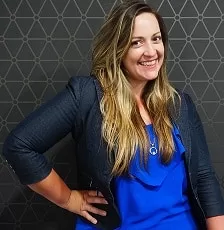
About the Podcast
The Lead with Levity podcast is a show for leaders who care deeply about what makes/breaks the employee experience. Our guests are dynamic researchers, practitioners, consultants, and business leaders. We cover foundational elements that are needed to avoid forcing the fun. We also invite lively managers who lead with levity to show us how it’s done. Thanks for joining us on this journey.
